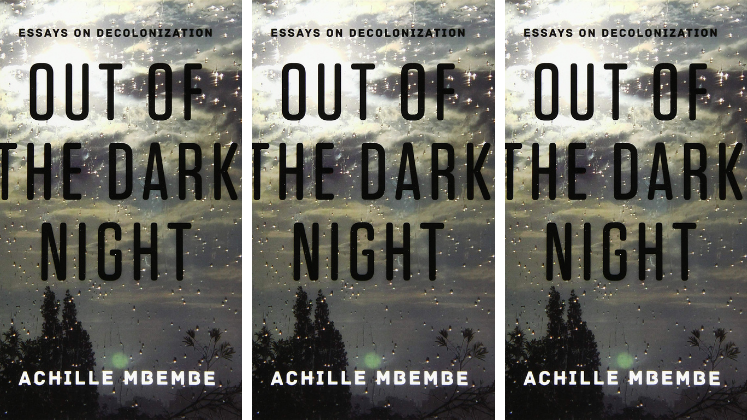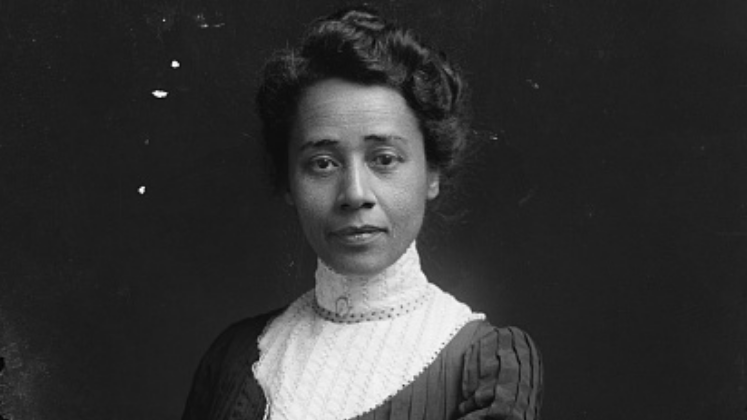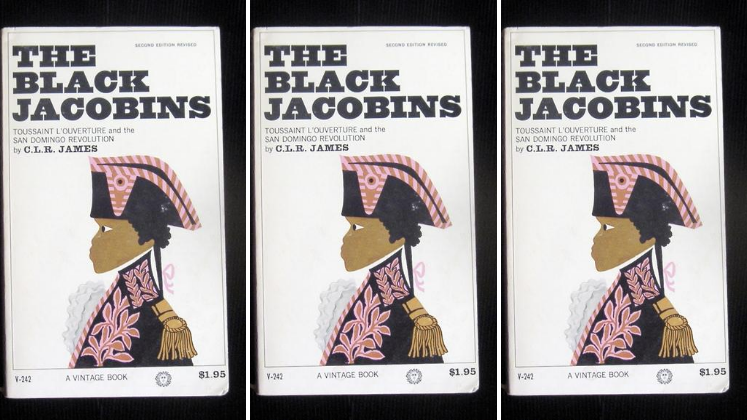In Decolonizing Politics: An Introduction, Robbie Shilliam explores the colonial and racist logics enfolded within the history of political thought while also identifying decolonising moves within the discipline. Recontextualising and reconceptualising the intellectual roots and routes of political science, this book is infused with new possibilities and optimism, providing practical solutions for scholars keen to go beyond power-laden racialised and gendered categories of thinking, writes Sudhir Chella Rajan.
You can explore further resources on decolonisation in higher education at the Firoz Lalji Institute for Africa’s Decolonisation Hub.
Decolonizing Politics: An Introduction. Robbie Shilliam. Polity. 2021.
The art of territory and the empire of political theory
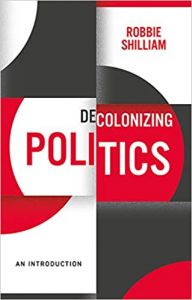 ‘The negroes are in general fine healthy people’, began the banner headline on page 3 of an 1828 handbill printed in Haymarket, London. That this was not some lavish assessment is abundantly clear in the very next line: ‘and have increased twenty in number since 1819’. The flyer was an auction notice for a group of nearly 300 men, women and children packaged for sale in two sugar plantations in St. Kitts along with several non-human livestock, two windmills, houses and 400 acres of land. Thomas Thomas purchased this bundled ‘property’ for 16,250 pounds.
‘The negroes are in general fine healthy people’, began the banner headline on page 3 of an 1828 handbill printed in Haymarket, London. That this was not some lavish assessment is abundantly clear in the very next line: ‘and have increased twenty in number since 1819’. The flyer was an auction notice for a group of nearly 300 men, women and children packaged for sale in two sugar plantations in St. Kitts along with several non-human livestock, two windmills, houses and 400 acres of land. Thomas Thomas purchased this bundled ‘property’ for 16,250 pounds.
Reading that handbill now, its clarity of intent is especially stark against the racist frenzy of white nationalists and their enablers, opposed by the counter-movement hashtagged ‘Black Lives Matter’. If racist bigotry seems absurdly anachronistic today, it is because there is no thoughtful support for it, even while racism as such has hardly disappeared. No living philosopher is opposed to the slogan ‘BLM’. A few may question the movement’s forms of protest and its demand to defund the police, but even to them it is abundantly clear that no framework of ethics can defend the dehumanisation of persons — through bodily harm and murder, threats, intimidation and systemic deprivation. The right to life for all is foundational to contemporary human rights jurisprudence, and irrefutably so.
Be that as it may, there are jarring disconnections between theory and practice. For millennia, some groups of persons violently and systematically abused others based on the latter’s bodily features and heredity. Today, police violence towards people of colour, institutional discrimination in the workplace and concerted attacks on the Global South in international politics and trade are endemic features that seem to have little or no permanent resolution.
These facts present themselves as embarrassing questions for political philosophy. What types of justificatory discourse or forms of reasoning, alongside the prevailing everyday social practices of ordinary people, fostered human slavery and its successive forms of discrimination for several centuries? How did they change shape, if at all, as societies got more integrated with the spread of legal institutions that protected equality? How did the great social thinkers of yore, whose ideas form the bedrock of today’s political theory and jurisprudence, tolerate or even validate these different practices in their midst? Or must we separate the wheat from the chaff, as some have suggested, by, say, ignoring Aristotle’s justification of slavery that it was part of the natural order?
Even more specifically, during the period known as the Enlightenment, which prided itself on the self-conscious application of practical reason against divine intervention or providence to validate new forms of social order, how were colonialism and slavery justified? Did moral accounting for prevailing forms of dehumanisation somehow get elided in the course of the progressive education of reasonable people in the nineteenth and twentieth centuries? Or were racist beliefs in fact encoded in the very forms of justification that gave rise to the duplicitous liberal institutions that are today dominant forms in constitutional republics around the world?

Image Credit: ‘2016-10-01_Margate06’, photograph of ‘The British Library’ by Yinka Shonibare by Ungry Young Man licensed under CC BY 2.0
In rare non-technical language that any troubled undergraduate student looking for answers can understand, Robbie Shilliam’s Decolonizing Politics: An Introduction follows the work of some of the most celebrated scholars of the European and North American traditions of social and political science to disclose their racial prejudices and other unexamined biases. But he also identifies decolonising moves within these disciplines that destabilise racial and gender stereotypes and rework political thought.
The history of political thought is typically treated in classrooms and journals as if it were the progressive development of pure forms of reasoning, uninterrupted by cultural biases and support for prevailing forms of power. In fact, several famous political philosophers, including John Locke, David Hume, Immanuel Kant and G.W.F. Hegel, not only took openly racist positions in their writing, but their ethics were constitutive of white male privilege alongside the construction of non-Europeans and women as having separate and only quasi-human identities. Different capacities for doing intellectual work among different groups became the very rationale for promoting the idea that there were ‘more or less competent [people] than others to exercise reason for political ends’. It is such hidden colonial logics in the history of political thought that Shilliam aims to disclose in this slim volume.
‘Inferior’ by nature or nurture
In broad terms, Shilliam identifies at least two strategies of colonial reason, one involving nature; the other, nurture. For millennia, claims about the natural deficiencies of women, slaves, serfs and non-human species have been the characteristic basis for exercising control over them. In the 10th mandala (or Book) of the Rig Veda, which was composed sometime between 1500-500 BCE, cosmic Man was deemed the originator of different types of varna, literally ‘hue’. Brahmins were formed in the head, lesser varnas in the arms and stomach and Shudras in His feet. In the Biblical tradition, Noah’s curse of eternal slavery on the descendants of Canaan was eventually used to justify the enslavement of black Africans.
In Politics, Aristotle justified rule by men of reason over women and slaves on the basis of natural order. ‘The relation of male to female is by nature a relation of superior to inferior and ruler to ruled’. Moreover, ‘the idlest [of humans] are nomads’, who derive sustenance from the wild without effort because they are in ‘a living farm’. As natural inferiors, slaves and animals ‘exist for the sake of human beings’. Nomads, like brigands, fishers and hunters, ‘do not supply sustenance through exchange and commerce’, effectively making them surplus members of society.
Shilliam describes how even nurture had primeval foundations for Aristotle. But here, the rule of reason, a discursive apparatus of logic, was especially vital. How does someone come to develop a reasoning mind? Usually by training, through refinement of some sort, or after being nurtured. To be nurtured properly in the arts of logic is also to be accultured toward refined practices and ideas, which serve to cultivate a well-trained mind. Refined men enhance their tastes to understand and appreciate ‘noble tunes and rhythms’. Animals engaging in collective projects such as bees and ants also have this property, though in a less distilled sense, by following ‘a single and common task [ergon] or function’.
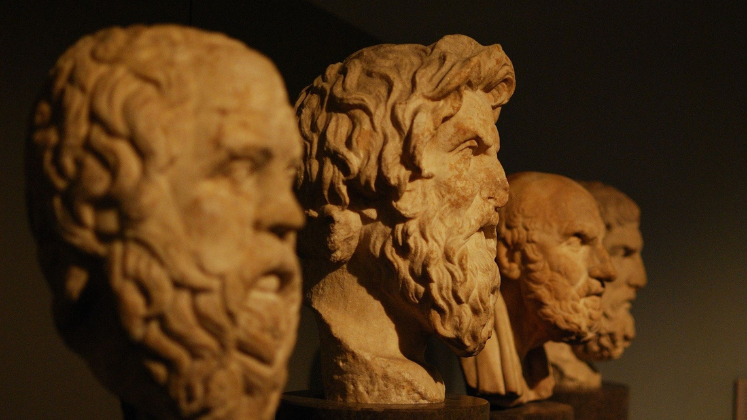
Image by morhamedufmg from Pixabay
Aristotle admitted in Politics that ‘man is much more a political animal than any kind of bee or any herd animal’, but ‘just as man is the best of the animals when completed, when separated from law and adjudication, he is the worst of all’. Since ‘without virtue, he is the most unholy and the most savage of the animals, and the worst with regard to sex and food, […] justice is a thing belonging to the city.’ The city (polis) was important here, for it was not an indifferent site of political activity but rather a spatial organisation that assembled for itself a set of commitments and tasks for a range of persons, animals and plants to fulfill broad economic goals that involved rent extraction and its redistribution. It was, in other words, an entire geography of government—the rule of people and things by those who could rightfully make claims to territory.
Aristotle defends the polis against imperial degeneration, but does so in a way that vindicates the entire apparatus that maintains the polis – the patriarchal family, slavery and the legacy of settler colonialism. Shilliam’s decolonising move here is to reveal that ancient claims of legitimate territorial control, which Aristotle upholds, were based on the presumption that might (of settler colonialism) is right and not on an abstract set of ethical principles.
Similar claims later coalesced into the imagined entity we now call the ‘state’, a set of carefully calibrated performances by elite networks which operated on three registers. The first was protection, a pastoral role of retaining a working population within a territory and ensuring its resources were properly fended off from outsiders. The second was effectiveness, which meant keeping the promise of prosperity active through a redistribution of rents that the elite network captured on surplus gains from land (through taxation) and trade (through geographical arbitrage). Third, and perhaps most important for the territorial polity’s endurance, was guaranteeing the legitimacy of its own rule, which was established on externally authorised institutions of justice. These included those provided by the rituals of divine sanction and by a system of the rule of law founded on demonstrably justifiable logic.
It is useful to note that territorial polities were a rarity until around 500 BCE. Still, the empires of Europe and Asia made such grandiose claims and engaged in such extravagant displays to create memorable spectacles of sovereignty that they constructed almost everything we know about the past. As late as 1500 CE, the vast majority of the human population lived outside the territories ruled by those making these ostentatious assertions of supreme authority. As James C. Scott observes, they knew well the ‘arts of not being governed’. Meanwhile, territorial political thought developed on the basis that refined men are the legitimate rulers over women and slaves, while barbarian nomads clamour at the gates of the city and are further to be distrusted for their idleness and unreliability. In short, only the already mighty (produced by nature or nurture) have established the right over the city in any type of regime: kingships, aristocracies or republics.
The impoverishment of humanity
Shilliam makes another nifty move by referring to the early writings of Kant. In doing so, he clarifies for us the intended subjects of Kant’s use of reason, a majestic word that makes staged appearances in the sublime language of the three Critiques. In Observations on the Feeling of the Beautiful and the Sublime, which was written about two decades before the three Critiques, Kant cites Hume to write that ‘among the hundreds of thousands of blacks who have been transported elsewhere from their countries, although very many of them have been set free, nevertheless not a single one has ever been found who has accomplished something great in art or science or shown any other praiseworthy quality, while among the whites there are always those who rise up from the lowest rabble and through extraordinary gifts earn respect in the world.’
Kant’s essential contention was that all black people and all women are ‘naturally inferior’ to white men. But in the Critique of Practical Reason, he wrote that the ‘ground of obligation’ upon which to draw moral conclusions is not to be ‘sought in the nature of the human being or in the circumstances of the world in which he is placed, but a priori simply in concepts of pure reason’. If so, on what basis but natural or birth-given attributes are women and slaves not owed the same rights as white men? Shilliam writes that Kant’s framing of humanity covers only white men because it is they (and only they) who are deemed to have the education and the cultivation to pursue human ends, whereas various non-European humans are not yet there. It is an argument that resembles John Stuart Mill’s relegation of the colonies to what Dipesh Chakrabarty has termed the ‘waiting room of history’, an abode that is ‘not yet’ Europe, but can surely reach someplace resembling it, once the ‘natives’ are properly refined.
In the end, even the nurture argument tends to be derived from a type of naturalisation of the character of the already displaced and disadvantaged. Black men are deemed lazy and unintelligent and ‘natives’ are deemed unreliable because of the very conditions of their existence: namely their birth and socialisation as captured peoples. The capacity for universal communicability and a sense of refined judgement is undeveloped in non-Europeans, but they can rely on European men to forge the emancipatory agenda of universal humanism. Shilliam writes that humanism was built on what Sylvia Wynter calls the ‘over-represented’ category of the human – over-represented, that is, first as Man1 by the white Christian man and, in the twentieth century, as Man2 by a normalised member of the Western European bourgeoisie. In both these constructs, Man was contrasted with animal in the same binary opposition of reason to sensory response, the decision-taking, rational investor/consumer versus the anarchist rebel who will just not play the game.
Coloniality and its territorial burden
If race is an ideological construct, re-reading Enlightenment philosophers reveals that it was a useful construct, useful to justify slavery and colonialism through various stages of the imperial project. Central to Empire was territory: its formation, institutionalisation and fortification, the extractive operations associated with it and the protection of the interests of rent collectors. Colonial exploitation in its various incarnations required a consistent confinement of exploited bodies to the waiting rooms of training and education, the ‘white man’s burden’. After World War II, when it no longer made economic sense to hold on to far-off colonies directly, the global order was re-organised on the basis of Bretton Woods arrangements for the non-Communist world. This was when Wynter’s simulated bourgeois liberal, economically rational Man2 became significant, because its properly marketised form now overtook every other possibility of human model: that is to say, it eclipsed a pluriverse of alternative ways of living and representation.

Image Credit: Photo by Adolfo Félix on Unsplash
Shilliam’s book covers a lot of ground in political science in addition to the history of political thought. These include behaviourism, the study of political institutions, comparative politics and international relations. He lays bare a dominant tradition in each of these domains where scholarship contorted itself to accommodate imperial and racist agendas. For instance, it was progressives in the United States who were most eager to advocate eugenics because they feared degeneracy with the mixing of hereditary characteristics. Race was the often unspoken tag to distinguish between ‘normal’ and ‘abnormal’ behaviour and competent and incompetent state subjects, while responsible elites managed the reins of the polity to maintain social order.
In comparative politics and international relations, research agendas were developed to ‘improve’ native populations, but not too hastily, perhaps in case that might go to their heads, as Hume had feared. European guidance and tutorship were essential to get the post-colonies out of disorder, but European responsibility for centuries of colonial violence was always neatly ignored in the analysis. This led to special designations for post-colonial societies: failed states, neo-patrimonialism, tribalism, traditional and authoritarian as opposed to modern and democratic, and dangerous populism. Yet, Shilliam points out that possibly because the field of international relations was most explicitly created as a science of imperial administration, it has seen some of the most remarkable decolonising moves by both scholars and intersectional activists.
More generally, Shilliam describes several instances of study and political organising that have been inspired by Frantz Fanon’s autopoiesis or collective self-making to redescribe political relationships not in terms of binaries but as flows and shifts of identity and difference, and also as inexact changes in power and legitimacy. In his imaginary conversation between the Chicanx queer theorist Gloria Evangelina Anzaldúa and Aristotle, Shilliam illustrates a process of redescription of familiar tropes with tolerance and ambiguity to ‘recontextualize and reconceptualize the intellectual roots and routes of political science’.
Achieving the pluriverse
Decolonizing Politics redescribes an array of allied disciplines — area studies, comparative politics, political theory and international relations — in a new light; critically, to be sure, but also providing practical solutions for young scholars who are keen to go beyond power-laden racialised and gendered categories. Shilliam’s approach is to engage in ‘border thinking’, to develop new languages of politics that might ‘erase the power hierarchies that consistently recreate centres-with-citizens and marginal peoples-on-borders’. It is not a cynical exercise at all but one infused with new possibilities and optimism for pluralist, decolonised solutions.
I end this review with two further pointers of hope. The first, which bears affirming in spite of the validity of the assessments made above, is that much good has resulted from the political science canon. One might point out, for instance, that the moral arc of Kant’s political philosophy has been bent by political activism for over two centuries towards the formation of human rights law. This is pointedly the foremost discursive juridical strategy that brought a modicum of justice to dominated peoples of all genders and hues since the nineteenth century. Human rights law might be a slender raft, but it is a raft all the same, on which a host of current and future concerns about displaced peoples, human trafficking and political violence can be salvaged. Recall that decolonial movements in India, South Africa, the US and elsewhere were led by activists on the streets as well as lawyers in courtrooms. The latter chipped away at the practical inconsistencies of jurisprudence built on universal principles derived from Aristotle, Locke, Kant and others, which preached freedom, equality and solidarity.
The relevance of the so-called ‘Western’ canon was highlighted in a recent Washington Post op-ed by Cornel West and Jeremy Tate on Howard University’s decision to shut its Classics department. West and Tate treat the decision as a sign of ‘spiritual decay and moral decline’, arguing that the Classics have profoundly influenced black freedom fighters throughout history from Frederick Douglass to Martin Luther King. West and Tate then seek a fuller appreciation of the classical canon, in spite of its discursive associations and methodological histories of justifying slavery and the other demeaning effects of colonialism. In arguing thus, they correctly signal their distance from Audre Lorde’s austere formulation: ‘The Master’s tools will never dismantle the Master’s house.’
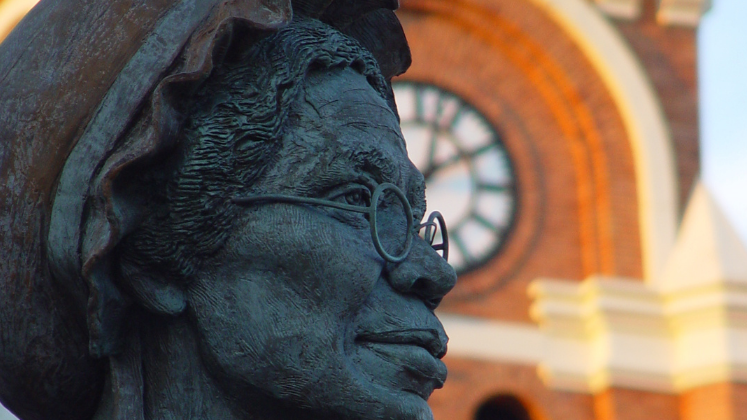
Image Credit: Crop of ‘Sojourner Truth Monument – Battle Creek’ by Battle Creek CVB licensed under CC BY 2.0
My second source of hope in the project to decolonise politics is its potential to produce hybrid, travelling cultures of scholarship that do not seek to ground ideas in a single canon. Aristotle, Locke and Kant may form a significant thread of conversation that is ‘Western’, but by the 21st century, many voices from the Global South and North have already joined that conversation, including Zera Yacob, Gandhi, B.R. Ambedkar, C.L.R. James, Michel Foucault, Wynter, Anzaldúa and Linda Tuhiwai Smith. Theory, pragmatic philosophers such as William James and West will point out, is a set of hooks to interpretation, not pegs on which to hang all the evidence. Theory is therefore a plural category, open-ended rather than closed, available for interpretation, not mastery.
What then might constitute a critical or decolonised canon of politics? Shilliam comes very close to identifying it, but he is prudent to only make gestures at this point, recognising that an open-ended and multi-pronged research of canonical and corresponding texts is a principal necessity. He emphasises that it cannot be founded on any type of nativism, even of the identity-affirming sort, say, of originating in a European or African location with pride of place.
Thought that is predicated on dissensus, but is still tentative and unsure of itself while remaining pluralist and agonist, is neither entirely new nor exclusively European in origin — it has venerable roots in Buddhist and Greek philosophical traditions as much as in Kant and Anton Wilhelm Amo and is today often termed critical philosophy. The political implications of such thought can be radical, just as the language of the American Declaration of Independence spawned not just the French Revolution but also the Haitian Revolution. And in spite of its internal contradictions of slavery, perhaps American political theory too may yet be redeemed, as Judith Shklar tries to, if it can be revisited as a strained set of plural engagements across Jeffersonians, Madisonians, Tocquevillians, Sojourner Truths and Anzaldúans, not as a way to cover up the violence and contradictions but to recontextualise and reconceptualise them.
Note: This review gives the views of the author, and not the position of the LSE Review of Books blog, or of the London School of Economics and Political Science.



